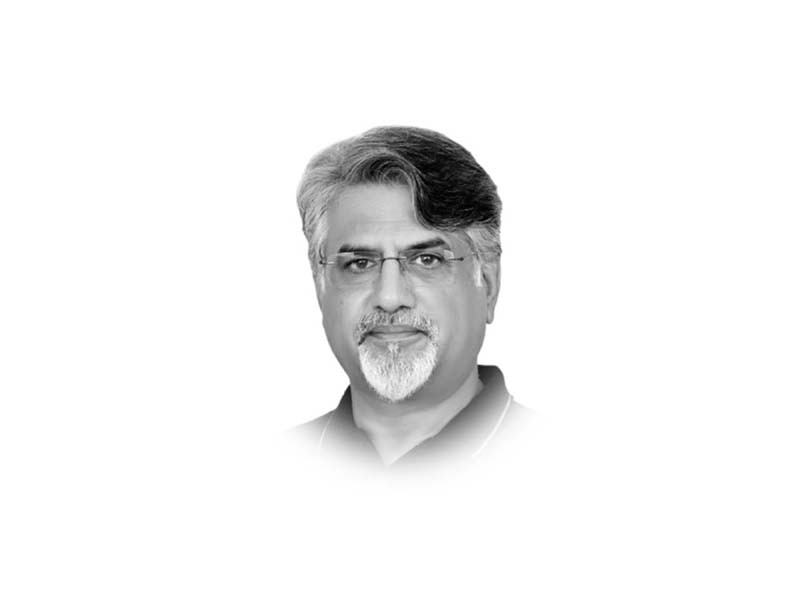
During this week I had an opportunity to do a podcast with Syed Muzammil Hussain Zaidi. A passionate young man with great potential, Zaidi not only has a lot of positive vibes about his country but also feels extremely concerned on many issues that we as a nation-state have not been able to resolve. The young man threw lots of questions at me but the last one was the show stealer and is still stuck in my mind? Why are we so polarised as a society? It is this question that I seek to answer in this article.
We all have flaws in our personalities but when a society makes the choice of supporting and electing worst members of society with fatal flaws in their personalities as their leaders, they sign the death warrants of their societies. Take the example of Germany. The people of Germany could easily have skipped the failed Nazi experiment and put their faith in liberal democracy. But they ended up electing one of the worst members of their society, a person with fatal flaws in his personality as their leader. Hitler would not have become Hitler if he had not been democratically elected by the people in the 1933 German democratic elections. So, history tells us that it is not 'who rules' but 'who is allowed by the people to rule' that makes the difference in the end. Leaders matter but people matter too. In the digital age, social media is the pasture where people seek and consume information like the antelopes seek and consume grass in the grasslands. In the great circle of information, power creates networks and information binds the networks and networks bind the audience. To me, the answer to the great polarisation we experience in our societies lies in how we seek, understand, interpret and perceive any given information.
Our quest for information, any information, is based on our desire to seek truth. Information leads to truth and those societies in the world that enable their people to access all kinds of information help them in seeking, learning and understanding truth. When dealing with information, people must clearly distinguish between misinformation and disinformation. Misinformation is positive because it may come from a source or a person who tries to represent a reality but gets it wrong. In civilised societies the spreaders of misinformation, on realising their mistake, retract that information and apologise. Disinformation is negative; it is dangerous and a deliberate lie. The spreaders of disinformation are the villains of society; and in the digital age, the circle of information provides them little time and space to hide.
Uncivilised societies are bombarded with disinformation and the leadership in such societies feed people with distorted views of realities through all the information spreading channels and networks that they control. In such societies state itself becomes an agent of creating polarisation in society by using the medium of information. Regardless of how any information represents or misrepresents a reality, what information always does is connect people. This connectivity creates different human groups - cohesive groups. Back in July 1969, millions of viewers sat in front of their TV screens and watched Neil Armstrong and Alvin Aldrin step out on the surface of the moon. Those millions of people which became a cohesive group were connected by the information that flashed a reality on their TV screens - the reality of moon landing. But decades later, today millions of people believe in a conspiracy theory that suggests that the moon landing was a drama and such a landing never took place. This again is a cohesive group which is connected together because of the disinformation spread through various information channels. The same can be said about the 9/11 attack. If we relate this aspect of information to the current Pakistani politics, what kind of polarisation do we find? Those that support status quo and those that are anti-status quo. Those that believe 9 May happened, those that believe it was orchestrated. Those that believe that on 8 Feb PTI won elections and those that believe in the results that Election Commission of Pakistan eventually released. So, the point I make is that polarisation is caused when doubts are created in the minds of people about certain aspects of a given reality. That is why rational thinking, logical reasoning and empirical evidence are so important in determining the accurate aspects of any reality. In a democracy, obviously parliament is the forum which allows discussions, debates and thus becomes a medicine that treats all the misinformation and even disinformation but the final arbitrator to settle disputes and to adjudicate truth is judiciary.
Mythology and bureaucracy are the other twin pillars that polarise a society. In the developed world and in civilised societies, men are more inclined to think in what they can do than who they are or what they can become. Fewer bureaucrats, holistic approach to problems, and achieving more with less is what the developed world stands for. In our part of the world, the army of bureaucrats and prevailing mythologies have created divisions and promoted unnecessary polarisation in society. Over the years, carefully crafted stories, the myths and fictions also create cohesive groups. A politician may be absolutely corrupt but myths of his social work and love for poor and his charity work may be used to project him as an entirely different person. So much so that people stop connecting to the person and only connect to the myths and stories spread about him. Bureaucrats help the survival, longevity, sustainability and indispensability of such leaders in power. In military warfare it is said that it is not the gun but the man behind the gun that matters. Retrospectively, in politics it must be said that it is not the leader but the bureaucracy behind the leader that matters.
Yuval Noah Harari in his latest book, Nexus, defines bureaucracy in a very explicit way. He considers that archivists derived a new order of the world when they started categorising documents by shelves - this he calls bureaucracy which literally means 'rule by written desk'. Originating in France, bureaucracy meant official sitting next to a desk, drawer - bureau. This official shelf documents in different shelves and drawers and thus bureaucracy anywhere in the world is about division and subscribes to the principle of divide and rule. In underdeveloped world and in a country like Pakistan, a typical bureaucrat hides behind the power of documents. Bureaucracy under the control and influence of politicians instead of providing health, care, security and justice to people drives them to chase official documents to prove a given credibility or legitimacy. We are polarised because we are still colonised. Colonised not by a colonial power but by incompetent leaders with fatal flaws who have created a bureaucracy that serves not the people but them.





1725784957-0/Tribune-Pic-(17)1725784957-0-165x106.webp)







COMMENTS
Comments are moderated and generally will be posted if they are on-topic and not abusive.
For more information, please see our Comments FAQ